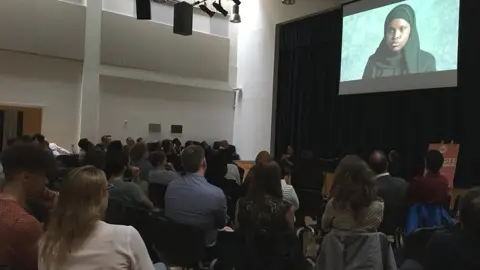Bristol holds 'City Conversation' in bid to tackle 'racial division'
 BBC
BBCThe first of four "City Conversations" has been held in Bristol in an effort to make the city less racially divided.
It follows a report by the Runnymede Trust which showed ethnic minorities experienced "greater disadvantage" in the city than other locations.
Three local institutions have organised a series of events to re-examine the city's relationship with the slave trade, and how to move forward.
Ujima Radio's Roger Griffith said it was about "connecting the city better".
The Runnymede Trust report showed one in five people living in Bristol in 2011 identified with an ethnic group other than white British.
But the city was the seventh worst out of 348 districts in England and Wales for inequality.
'Most segregated city'
In a joint statement, the Bristol Post, the Bristol Old Vic Theatre and Ujima Radio said the 2017 report showed that Bristol was "the most segregated core city in the UK".
In the same year, the city was named as the UK's most desirable location in the Sunday Times Best Places to Live Guide.
Mr Griffith said the initiative was about how the city could "work collectively to close those gaps in equality".
"We have great wealth in this city, we have a fantastic city, but there are things that we're not tackling and things that we're not talking about," he said.
Tom Morris, from the Bristol Old Vic, said the city had a "brilliant, diverse and vibrant population" and the theatre was "determined" to play its part as a place where Bristol could "reflect on the issue of segregation".
"The conversation may be daunting, but we think it will be enriching for all," he said.
At the first meeting held at the City Academy on Wednesday night, some students at the academy said that "people in Clifton don't experience discrimination and won't understand what we go through".
Desmond Brown, a commissioner for race equality in Bristol, asked why black people "were not part of British history".
"White people need to step up. Black people have been stepping up for too long," he said.
